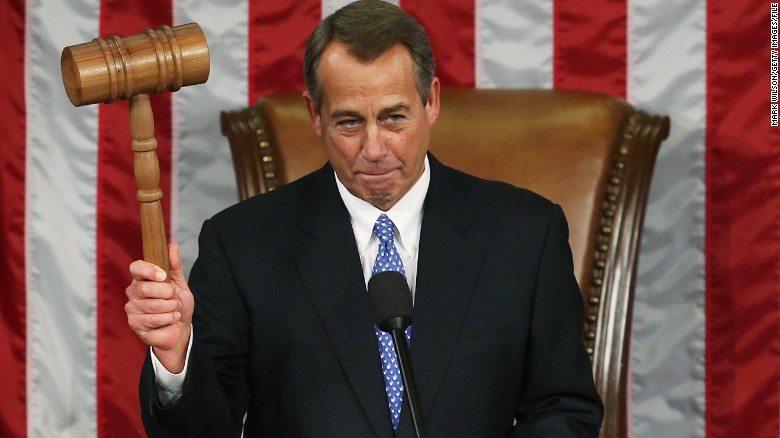From CNN
In recent days, the Congressional focus had been on keeping Congress open for the next few months by passing a funding bill; by agreeing to maintain basic government funding at previously agreed upon amounts, the government would not run out of money while more controversial aspects of the budget were being debated. Boehner had been put under immense pressure by conservative Republicans to defund Planned Parenthood in this bill; some had even threatened to challenge his role as Speaker.
Speaker Boehner's resignation helps to avoid a potentially humiliating public battle within the Republican Party leadership. He remarked,
"My first job as speaker is to protect the institution. It had become clear to me that this prolonged leadership turmoil would do irreparable harm to the institution."
This announcement comes only a day after Pope Francis visited Congress and spoke about the necessity for the Parties to come together on common ground. The two also shared a prayer and a hug together, which deeply moved the Speaker.
What does this mean for the future of the Republican Party? What does this mean for some of the GOP presidential election campaigns (especially when the likes of Ted Cruz, Marco Rubio, and Donald Trump have applauded Boehner's decision to resign)? Will this make Congress more obstinate than it already is?
NY Times
CNN

1 comment:
So I waded through several pieces of news and commentary; from my current understanding, and please help me supplement this, Boehner is resigning because he has come to the point of upsetting a growing portion of the Republican party for the sake of fulfilling his job as Speaker. He rose to popularity by mimicking a hard-line Republican and completely refusing to cooperate with President Obama, but once he was elected Speaker and adjusted to the position's more realistic state of compromise, radical party members turned against him for failing to pursue the hard-edged agenda he had promised.
Yet the Republican Boehner has little choice but to compromise in light of a Democratic president and barely a majority in the Senate. He's increasingly performing what people call a "thankless job."
As for the future Speaker, Kevin McCarthy is predicted to face pretty much the same problems Boehner did. It seems to me as if the party is kicking out its moderates and turning towards its (for lack of a better description) grassroots, Southern constituents (Trump seemed to do the same thing. Did he start it, or is he preying off a general trend?), and as it does so, the party increasingly loses its chances of being taken seriously by pretty much everyone else. Yet party extremism and disunity is hardly a new phenomena.
So you've got the themes going on here: grassroots members bitter that the "establishment" is working against them; party representatives juggling opinions in order to keep their jobs; one party hating the other party because hey, it's easier to think of the world that way. I'm probably oversimplifying this, but while I don't think that Boehner should have sold himself as a fake, albeit popular, party extremist, I do sympathize with his dilemma. I'd like to see a Republican do different in his place and still manage to accomplish what Boehner has.
Here's a nice (albeit biased towards my point) supplement to the news articles. Daily Intelligencer combined snippets from various political commentators into a single article about how Republicans are reacting to Boehner's resignation. Check it out: http://nymag.com/daily/intelligencer/2015/09/how-the-right-is-reacting-to-boehners-exit.html#jumpLink
Post a Comment